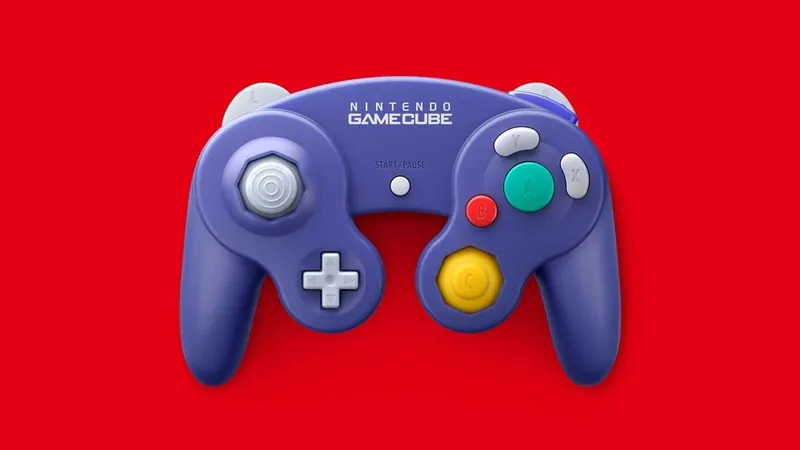
Breakthrough Study Shows Wearable Devices Could Predict IBD Flare-Ups Weeks in Advance!
2025-01-20
Author: Daniel
A groundbreaking study conducted by researchers at Mount Sinai has unveiled a fascinating truth: wearable technology, including popular smartwatches and fitness trackers, can predict flare-ups in individuals suffering from inflammatory bowel disease (IBD) weeks before they occur. The study, recently published in the esteemed journal Gastroenterology, signals a new era in the proactive management of chronic diseases using everyday technology.
IBD encompasses conditions like Crohn’s disease and ulcerative colitis, which afflict millions globally, resulting in severe symptoms such as intense abdominal pain, debilitating fatigue, and persistent diarrhea. Managing this chronic condition typically revolves around controlling inflammation and avoiding flare-ups—periods when symptoms spike dramatically.
The unique study tracked over 300 participants from various regions in the United States. Each individual wore a wearable device, took daily symptom surveys, and provided routine blood and stool samples to monitor inflammation levels effectively.
Key Findings:
1. Physiological Monitoring: The study highlighted that wearables could detect nuanced shifts in physiological indicators such as heart rate variability, heart rate, oxygen levels, and daily activity trends—all of which correlated with inflammation markers and symptoms.
2. Asymptomatic Inflammation Detection: Remarkably, these devices were capable of identifying inflammation even when participants felt fine, underscoring the importance of continuous monitoring for early intervention.
3. Flare-Up Prediction: Perhaps most groundbreaking, the research indicated that physiological changes tracked by wearables could signal the onset of flare-ups up to seven weeks in advance.
Implications for IBD Management:
The potential impact of these findings on IBD management is profound:
- Proactive Treatment: Early prediction of flare-ups allows healthcare providers to adjust medications or recommend lifestyle changes proactively, possibly averting severe episodes and improving patient outcomes.
- Tailored Treatment Approaches: Continuous data gleaned from wearables empowers healthcare professionals to craft personalized treatment strategies based on real-time insights into each patient’s disease activity.
- Enhanced Quality of Life: By managing flare-ups effectively through early intervention, patients can enjoy fewer disruptions in their everyday lives, leading to an overall enhancement in their quality of life.
- Reduced Healthcare Burden: Proactive identification and prevention of flare-ups can significantly decrease the need for hospital visits and emergency interventions, easing the strain on healthcare systems.
Dr. Robert Hirten, Clinical Director of the Hasso Plattner Institute for Digital Health and lead author of the study, emphasized the transformative nature of these findings. He pointed out that current disease monitoring often requires invasive procedures and patient-initiated healthcare interactions. "Our research indicates that widely-used devices like Apple Watches, Fitbits, and Oura Rings can serve as powerful tools for remote and continuous monitoring of chronic inflammatory diseases," he stated.
Dr. Hirten concluded, “The possibilities for leveraging wearable technology in health monitoring and disease management are virtually limitless, and we believe this innovation can significantly enhance the quality of life for many IBD patients.”
This study not only showcases the impressive capabilities of modern technology but also opens the door for a future where chronic conditions can be managed more seamlessly, offering hope to millions living with challenging health issues.

 Brasil (PT)
Brasil (PT)
 Canada (EN)
Canada (EN)
 Chile (ES)
Chile (ES)
 Česko (CS)
Česko (CS)
 대한민국 (KO)
대한민국 (KO)
 España (ES)
España (ES)
 France (FR)
France (FR)
 Hong Kong (EN)
Hong Kong (EN)
 Italia (IT)
Italia (IT)
 日本 (JA)
日本 (JA)
 Magyarország (HU)
Magyarország (HU)
 Norge (NO)
Norge (NO)
 Polska (PL)
Polska (PL)
 Schweiz (DE)
Schweiz (DE)
 Singapore (EN)
Singapore (EN)
 Sverige (SV)
Sverige (SV)
 Suomi (FI)
Suomi (FI)
 Türkiye (TR)
Türkiye (TR)
 الإمارات العربية المتحدة (AR)
الإمارات العربية المتحدة (AR)